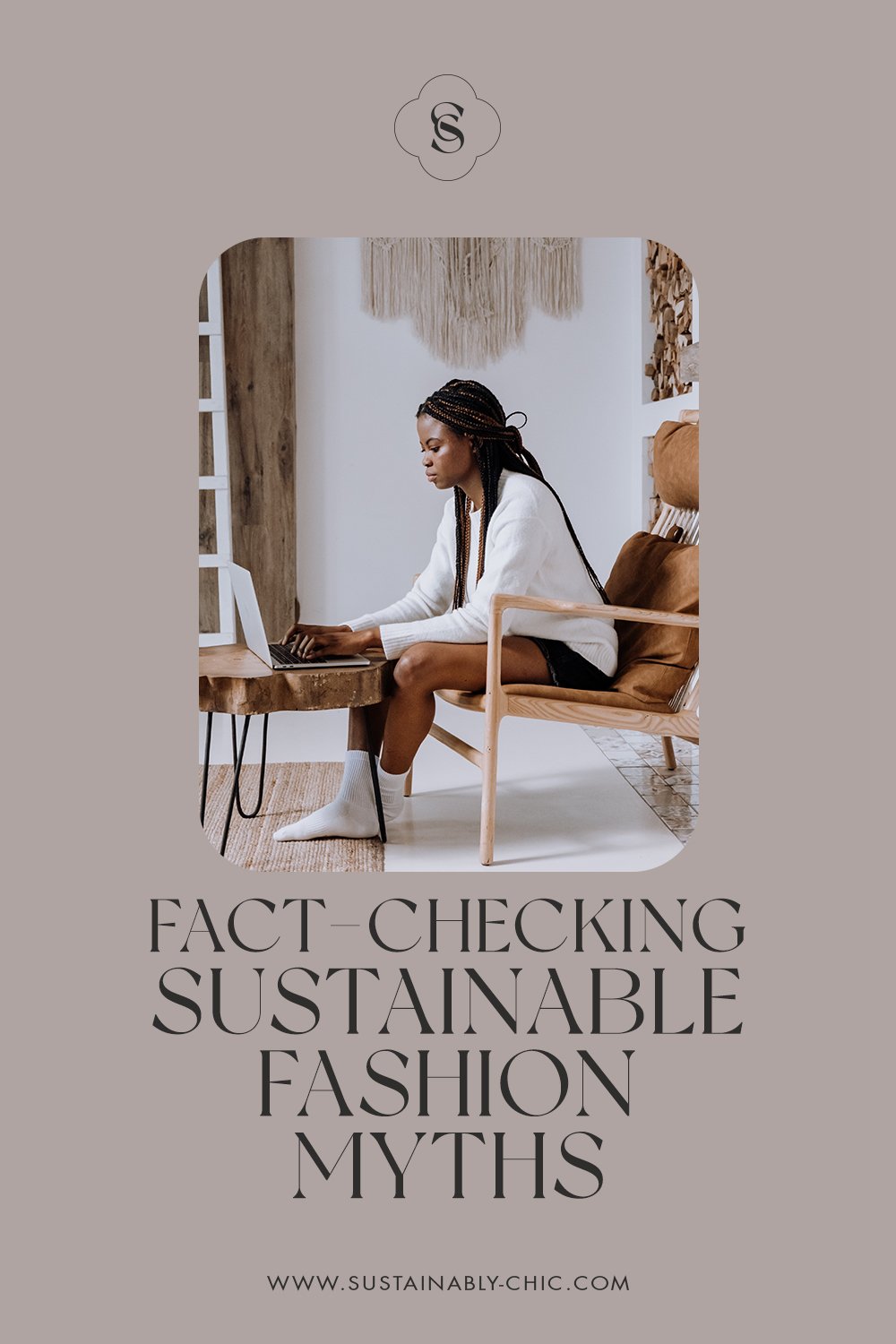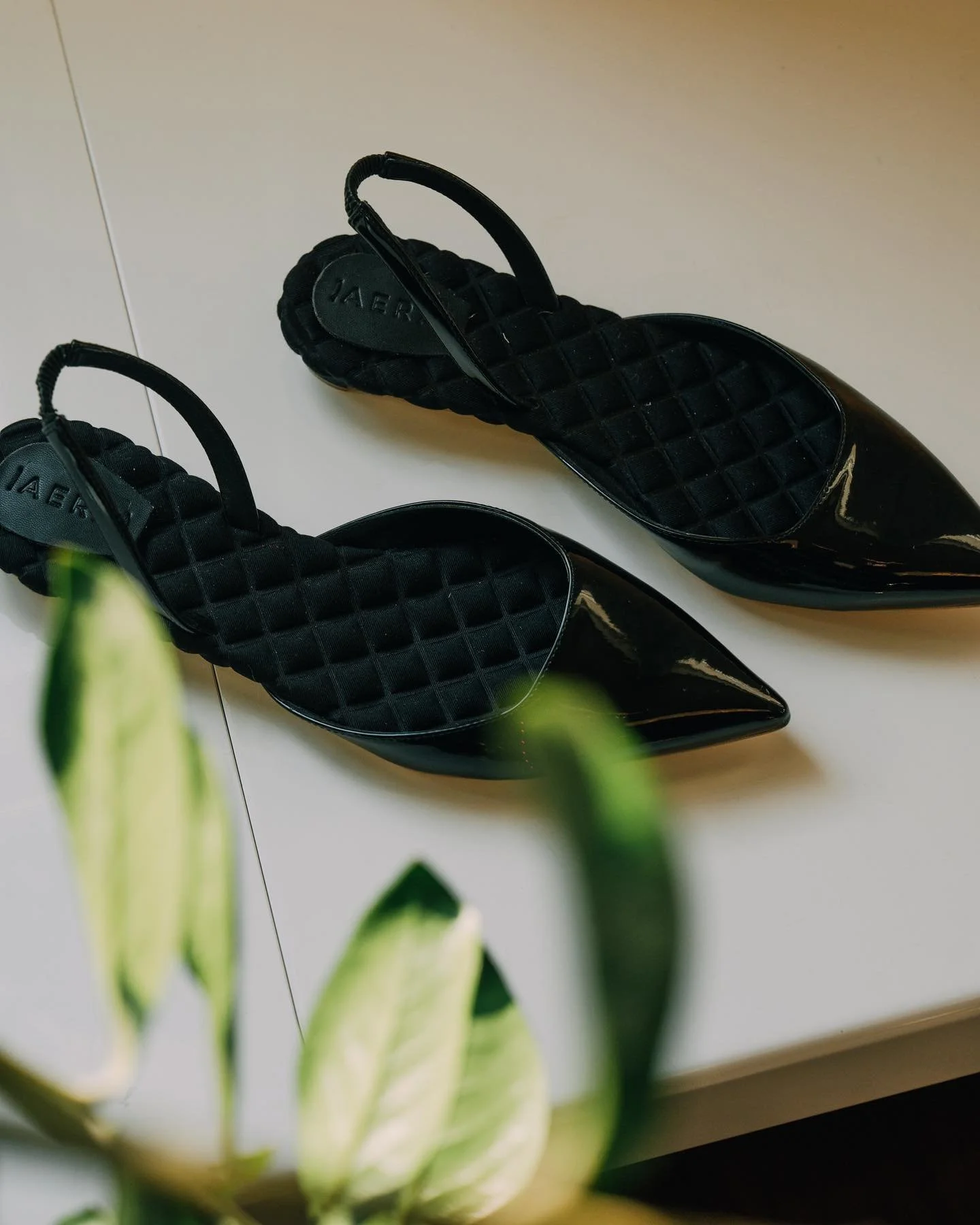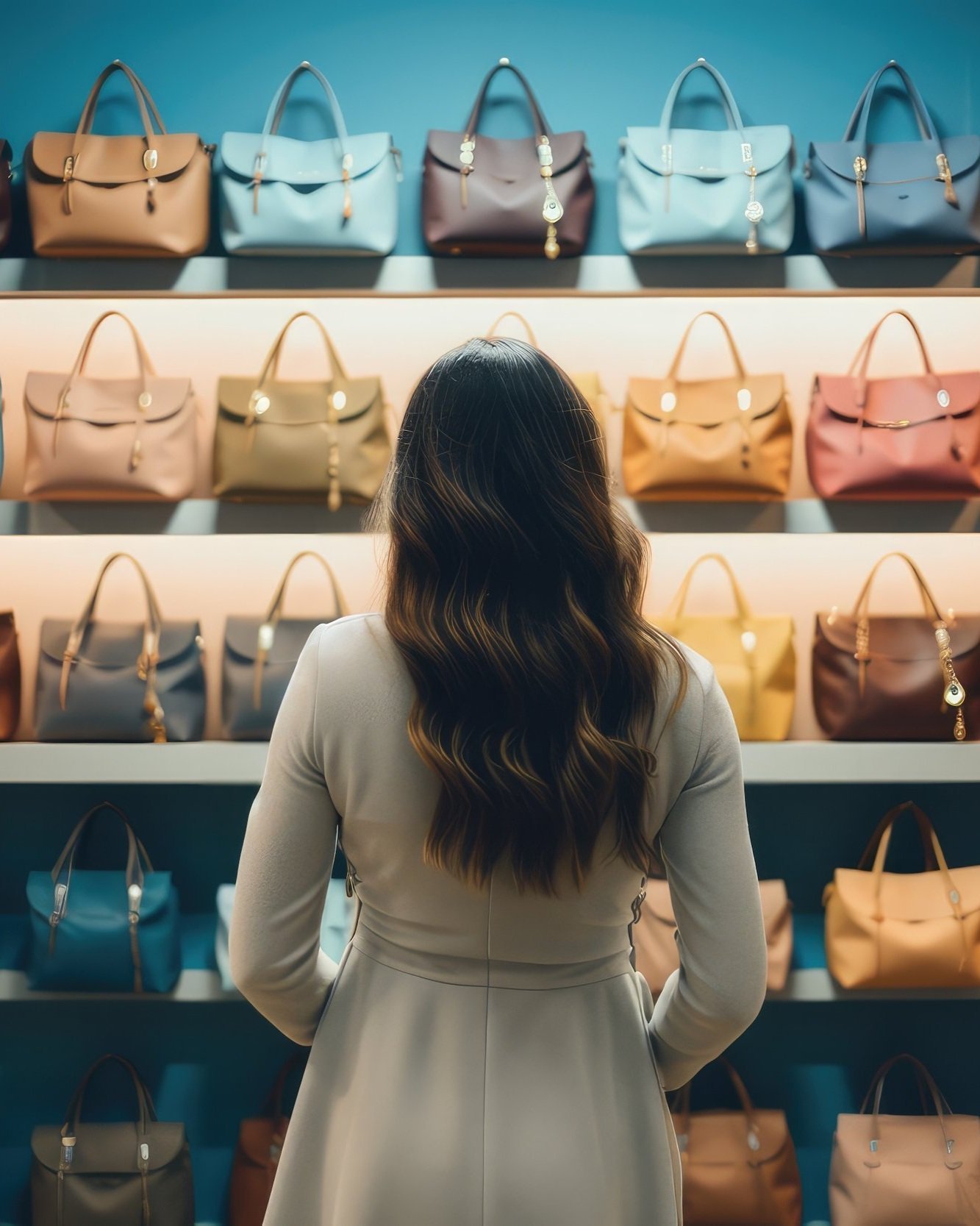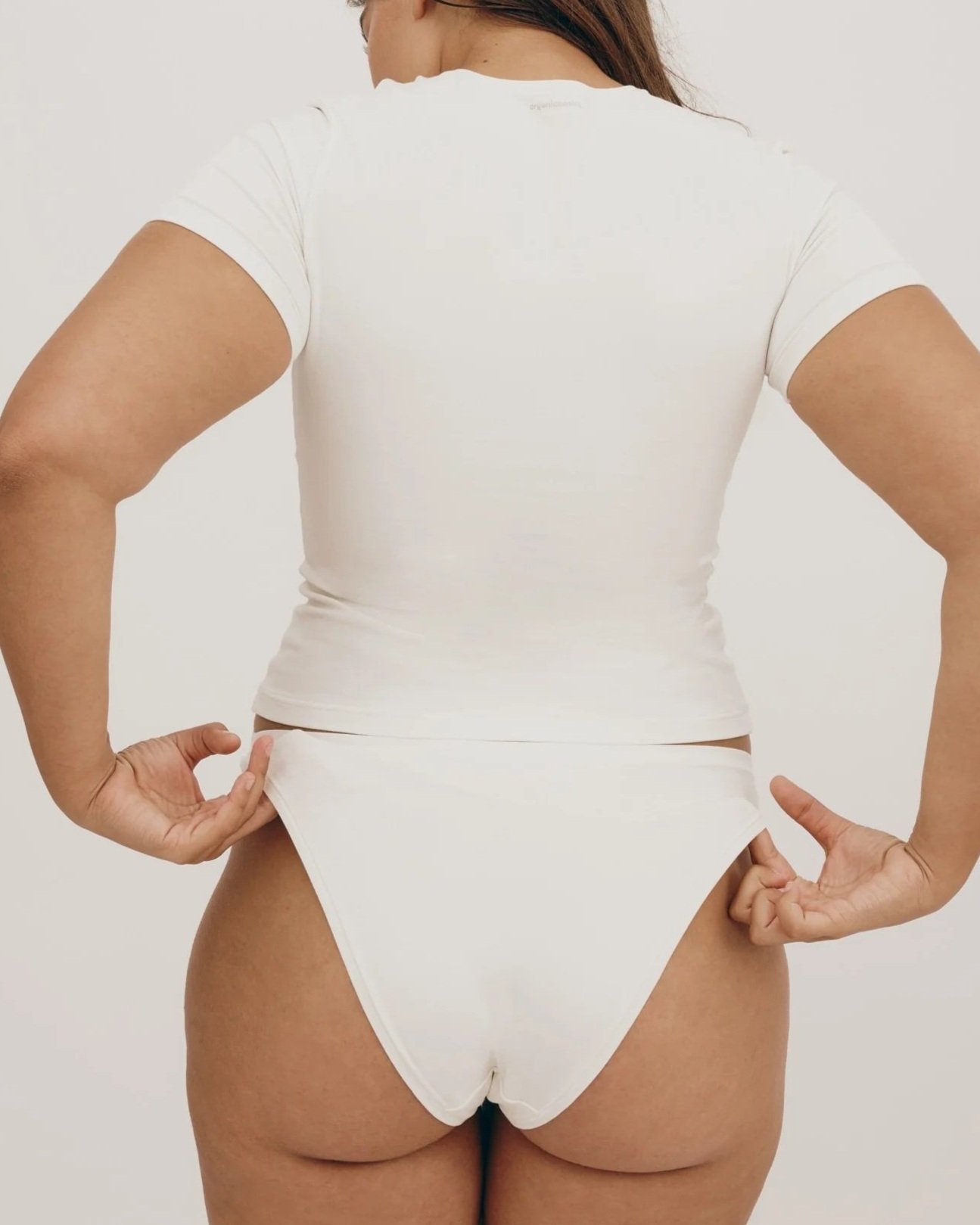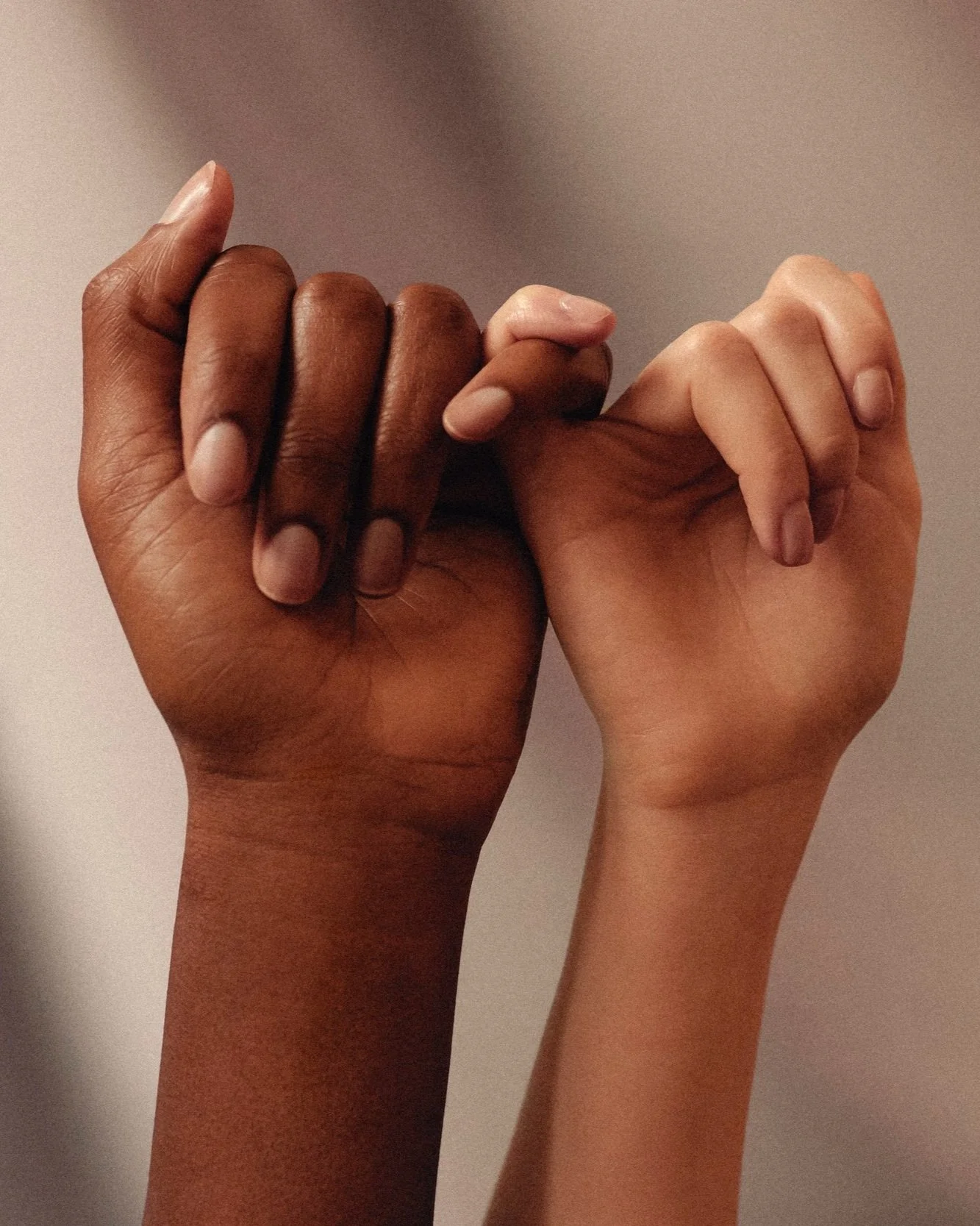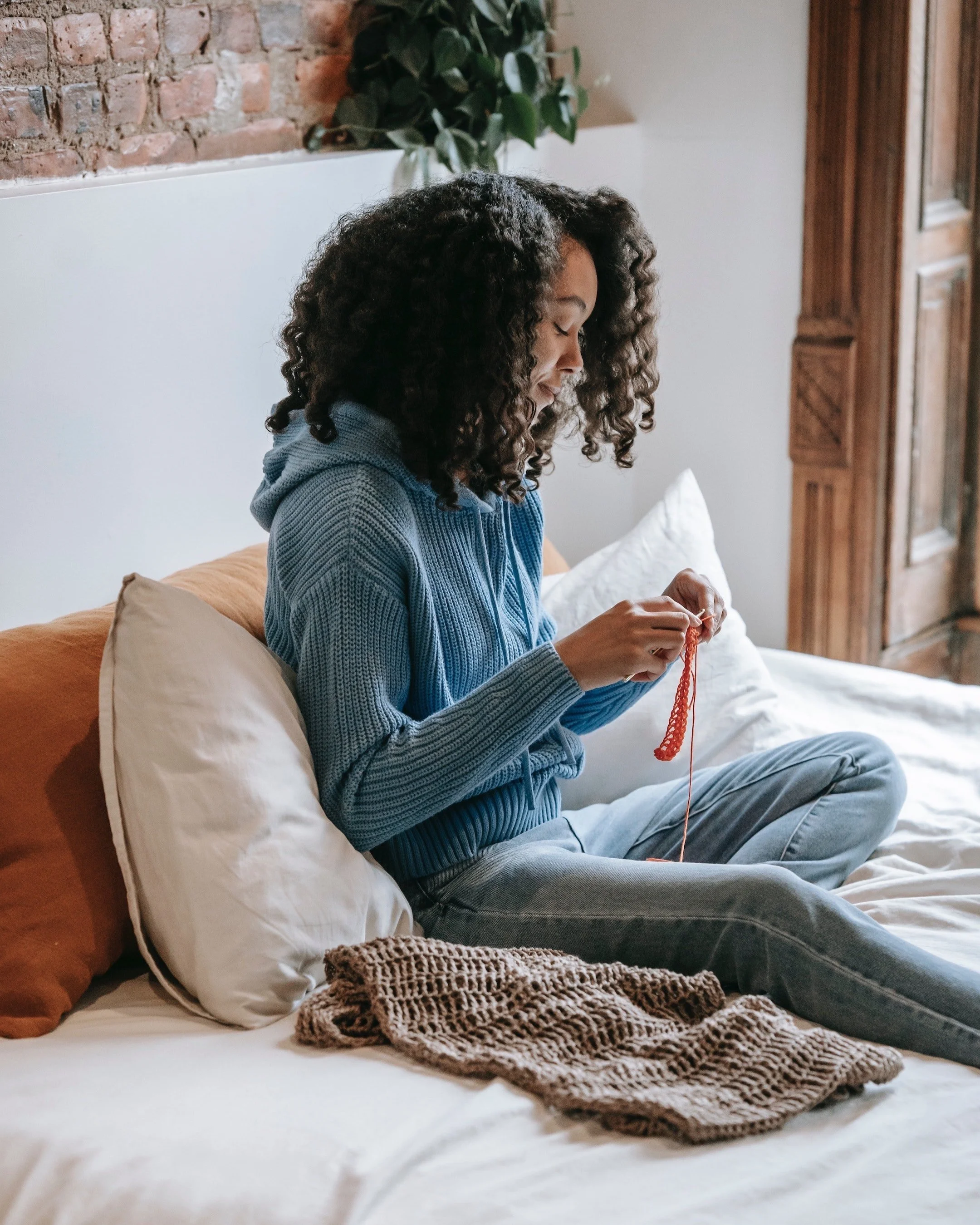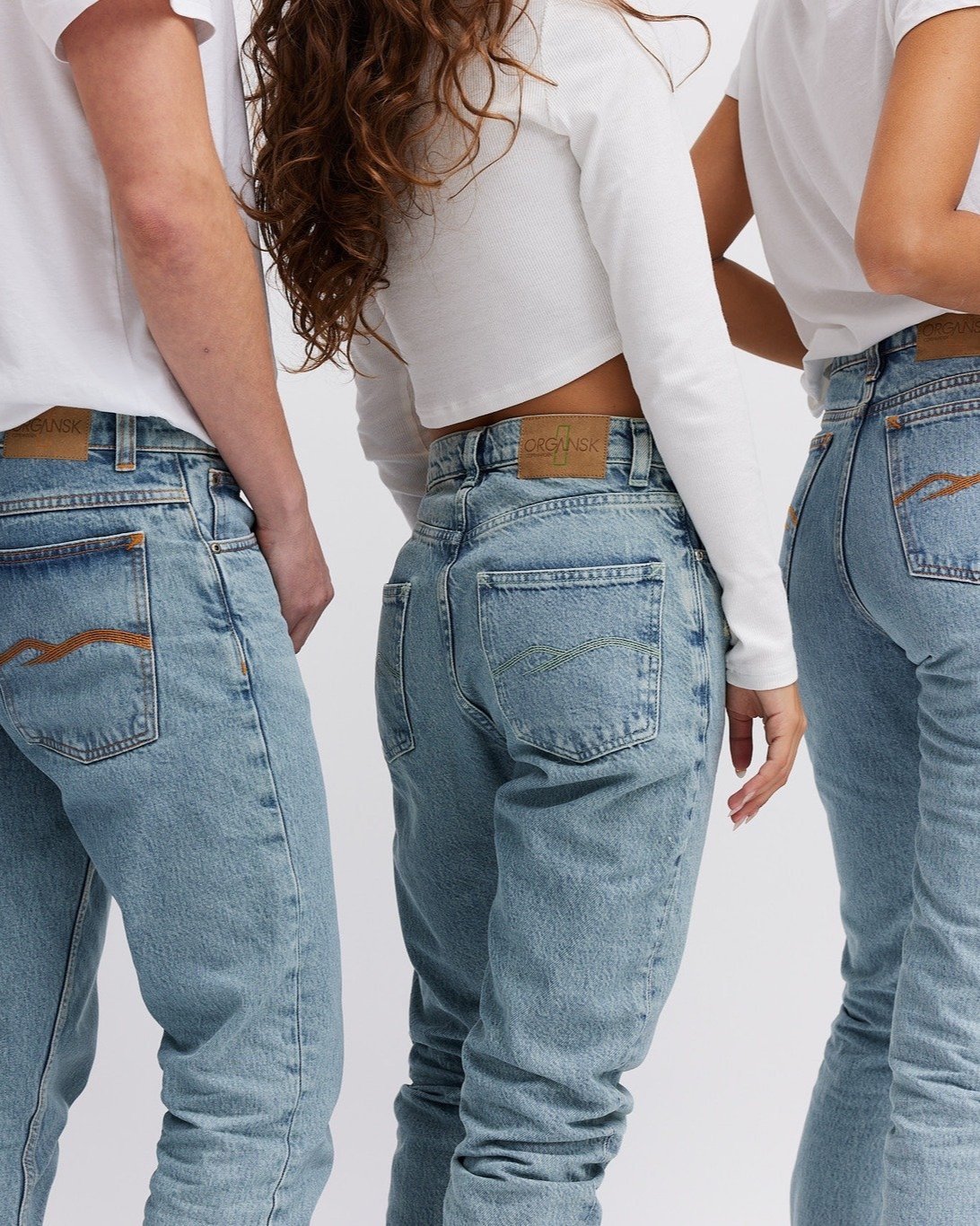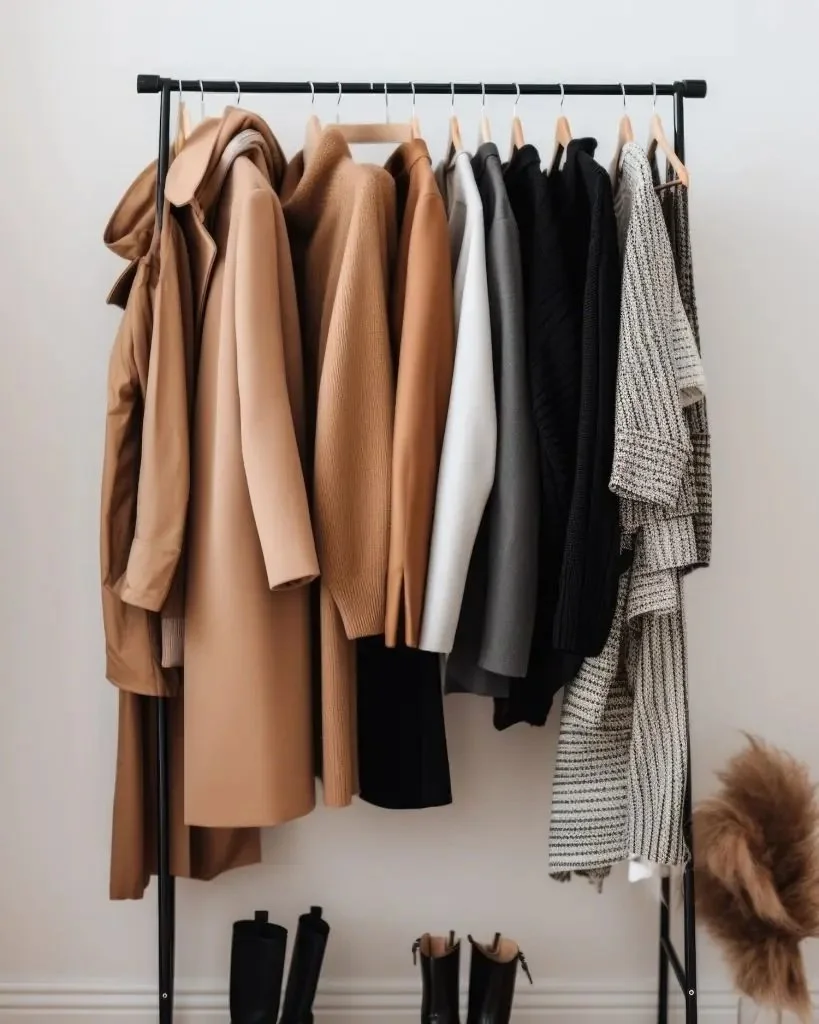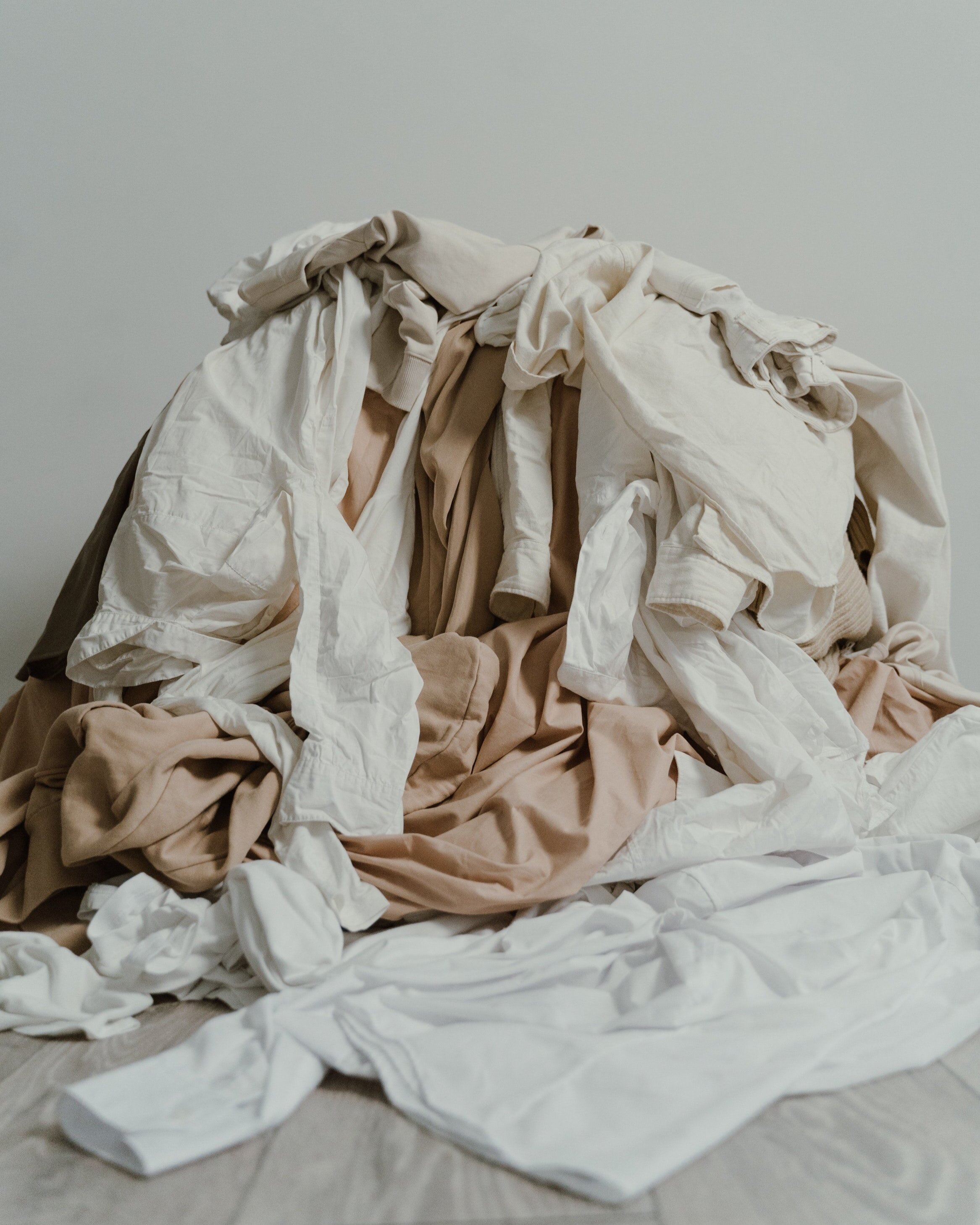Fact-Checking Some Sustainable Fashion Myths
Myths of Sustainable Fashion; What IT is & What It isn’t
There are a lot of myths floating around the internet and the in-person world about sustainable fashion. Is sustainable fashion all $100 plain white t-shirts and bland, unflattering designs? Is buying from sustainable brands all there is to sustainable fashion? Is sustainable fashion only for people who have a lot of disposable income?
With all these misconceptions going around, people can easily get discouraged from learning more about sustainable fashion, building slow fashion habits, or giving some earth-friendly and fair-minded designers a try. After all, who would want to spend a ton on clothes they don't even like? But luckily, that is not something people have to do to get involved in sustainable fashion.
This article will debunk some of the most pervasive sustainable fashion myths to shed light on what sustainable fashion is all about and how sustainable fashion brands operate.
Sustainable fashion is boring, and the clothes all look the same
While sustainable and ethical brands share a desire to create fashion as responsibly as possible and operate following similar environmental and social principles, the way the clothes they make look varies way more than some might think. That's because sustainable fashion is not a set aesthetic but a mind-set.
Sustainable brands are not as popular or well-known as the big fast-fashion or luxury fashion companies. Still, there are countless of them out there, and all have different aesthetics and designs.
Some brands offer colorful, fun clothes that are perfect for all the dopamine dressers out there, while others stick to neutral color palettes and sleek silhouettes that scream minimalism. You can find sustainable workwear, cottage-core-looking dresses, fancy lingerie, and the everyday basics that most of us wear daily, like a good pair of jeans.
By supporting sustainable indie brands, chances are your wardrobe might be enriched by more creative, unique, fresher designs that are harder to come across when out and about compared to the mass-produced ones of fast fashion brands.
Luxury brands are more sustainable than fast-fashion brands
Luxury brands might come with quite the price tag and have a lot of prestige, but that doesn't mean they invest in eco-friendly fabrics or pay their workers a living wage.
Many luxury brands use synthetic fabrics to make their garments, and like fast fashion brands, several luxury fashion brands have been involved in sweatshop scandals.
Let's look at Fashion Revolution's "Fashion Transparency Index 2022," which analyzed what information the world's largest fashion brands and retailers disclose about their social and environmental practices and policies. We can see that the highest ranking among the luxury fashion brands, the Italian high-end fashion house Gucci, scored just 59% percent.
Similarly, labels such as "made in the US" or "made in France" bank on the customers' perception that exploitation is unlikely to happen in the Global North. But even brands whose supply chain is mostly, if not entirely, based in Europe or the US are not automatically exempt from workers' exploitation as low or non-existent national minimum wages still allow brands to underpay workers and keep them in poverty.
Sustainable clothes are super expensive
Using eco-friendly materials, paying workers fair wages, and other similar ethical business practices inevitably raise the production cost of a piece of clothing; that's why you will never find an ethical and sustainable brand charging as little as $5 or even less for a t-shirt.
That said, clothes from different sustainable brands will have different prices, as some brands still manage to offer relatively affordable pieces while conducting business responsibility as factors such as the complexity of the garment, the type and amount of fabric used to make it, and the production location can influence the piece's final price.
If the price of the sustainable clothes you like and make you feel good is out of budget, do not let that discourage you from getting involved in sustainable fashion. There is so much more to that than just buying clothes from more responsible fashion brands.
I'd need to throw away my clothes and get a whole new wardrobe
On that note, let's address the oddly pervasive myth that you must buy a bunch of new clothes from sustainable brands and ditch the old ones to make your wardrobe sustainable. If we think of sustainability more as a mind-set and less as a different way to shop, it's clear why there are better ways to start a sustainable fashion journey than buying a whole new wardrobe worth of clothes.
On the contrary, cherishing, re-wearing, and maintaining the clothes we already own in good shape are some of the most sustainable actions anyone can do when it comes to fashion, and that applies regardless of whether you purchased your clothes from a fast fashion brand or an ethical and sustainable one.
That's why sustainable fashion is something that people on any budget can get involved with: it's all about the opposite of overconsumption and overbuying. Purchasing only clothes you will wear and take care of for a long time is the best, easiest, and most budget-friendly way to have a green closet.
Sustainable clothes and brands are hard to find
People in big cities might have easier access to in-person stores selling clothes from sustainable and ethical fashion brands. But thanks to the internet, it's much easier for people to find sustainable fashion brands regardless of their area.
You can buy directly through your favorite sustainable fashion brands' websites, from retailers offering pieces from various fashion companies, and even from the e-shops of in-person clothing stores. You can also find fashion artisans that are local to you through a little internet search, and via Etsy, you support smaller indie fashion designers from all over the world.
The same goes for thrift stores. While they are easier to find in large urban areas, people can thrift online on websites and apps like Depop, Vinted, and Vestiaire Collective and even rent clothes online for special occasions.
Following sustainable-minded fashion content creators on social media can also be a fantastic way to find new sustainable fashion brands and get some non-overconsumption-centric fashion inspo and tips.
If a piece of clothing is made with an eco-friendly fabric, then it's fully sustainable
Using eco-friendly fabric is part of what makes a garment sustainable. Still, it shouldn't be the only item on the checklist of a fashion brand that wants to do business responsibly.
Too often, we see fast fashion brands trying to greenwash their business practices by highlighting the use of sustainable fabrics in part of their production or specific collections to distract potential customers from their history of workers' rights violations.
Given this, it's easy to see why some might forget that the social aspect of the production is just as crucial as the environmental one to define whether or not a fashion brand is sustainable. Genuinely sustainable fashion brands value transparency, trace their supply chain, and ensure safe working conditions and fair wages to the workers making the clothes they sell, in addition to choosing more Earth-friendly materials such as organic cotton or Tencel.
Another aspect to consider is how many clothes and collections a fashion brand produces and sells. Brands that constantly push out new collections are hardly sustainable even if they follow strict environmental and social criteria, as overproduction is a massive part of what makes much of the fashion industry unsustainable in the first place.
There is no way of knowing if a brand is actually sustainable
It's true that so far, brands of all kinds can define their products as "sustainable," "green," or "eco-friendly" without having to follow specific criteria or rules or providing any evidence of their alleged sustainable practices to a regulatory body. Fortunately, there are still plenty of ways to tell if a brand is committed to sustainability or if it's just greenwashing.
We can easily browse a brand's website for more information and check if they talk explicitly about their current sustainable practices and policies. While there is no such thing as a 100% sustainable and ethical fashion brand, some companies are more committed than others to sustainability. We can easily spot them if we learn which actions are signs of a genuine commitment to sustainability and fair business practices.
As ethical and sustainable brands value and practice transparency, they share details about the production of their clothes. They tell their customers where their clothes are made, who makes them, how much they are paid, and what fabrics and dyes they use to create them. They might also talk about the sustainable goals they are currently working on, as well as the sustainable milestones they have reached so far.
Certifications are also a good sign that a brand is trying to be as sustainable as possible, and it's an easy way to verify some of the brands' claims. There are plenty of certifications out there, but among the most common and reputable ones you can find the Global Organic Textile Standard (GOTS) and OEKO-TEX®, which certify fabrics, the Fairtrade International certification, and B-Corp, which certify compliance with a set of economic, environmental and social standards.
About the Author:
Roberta Fabbrocino is a journalist specialized in climate change and sustainability-related topics. Her articles have been published in several international eco-publications. Roberta also works as a content writer for sustainable companies.
MAKE SURE TO PIN THE PHOTO BELOW TO SAVE THIS POST FOR LATER!
LOOKING FOR SUSTAINABLE BRANDS? VISIT OUR BRAND DIRECTORY!
Our Brand Directory is home to hundreds of sustainable brands, from makeup to cleaning supplies, from underwear to shoes. We have broken everything down by category for easy shopping, along with discount codes unique to Sustainably Chic viewers.






